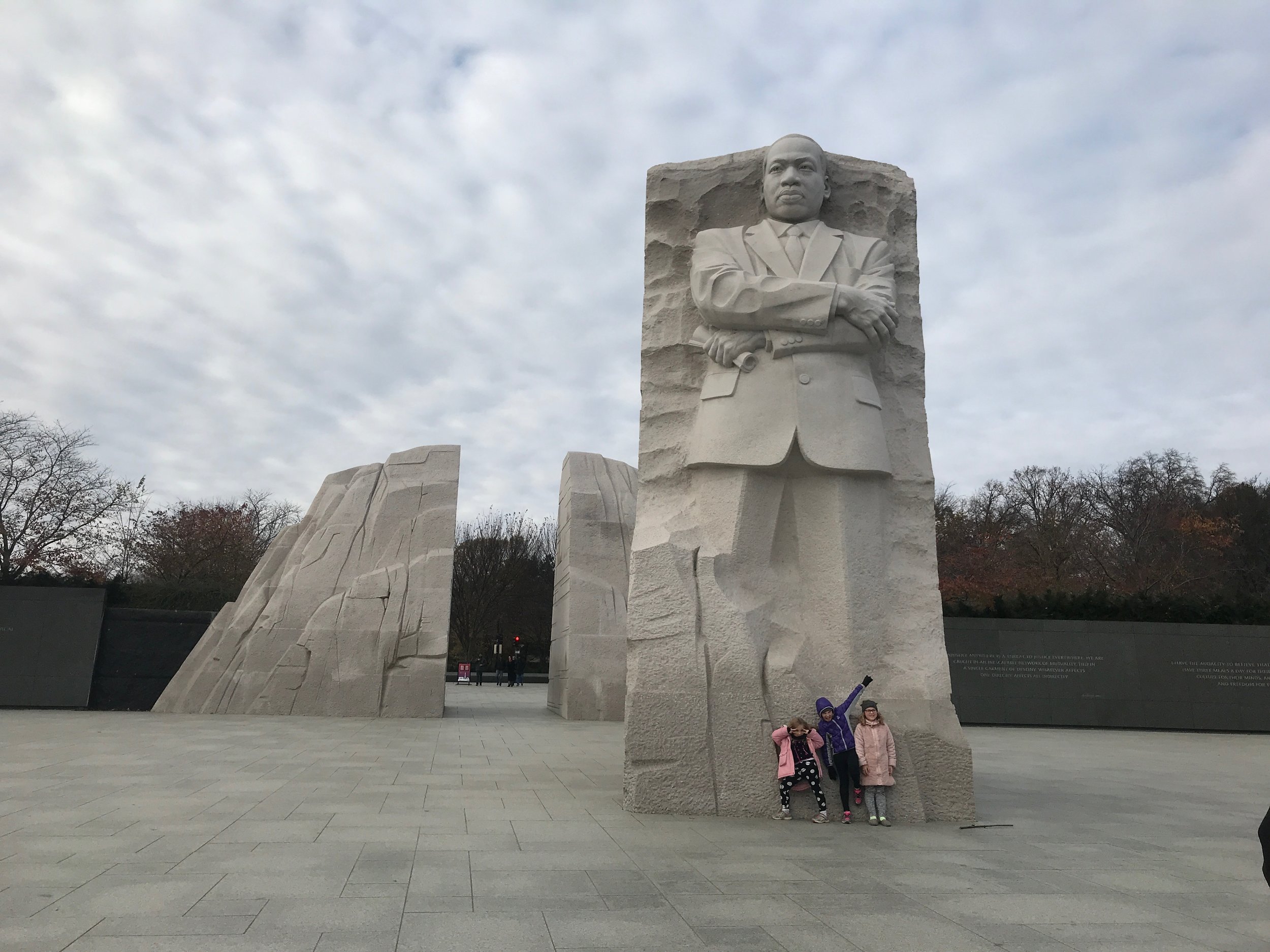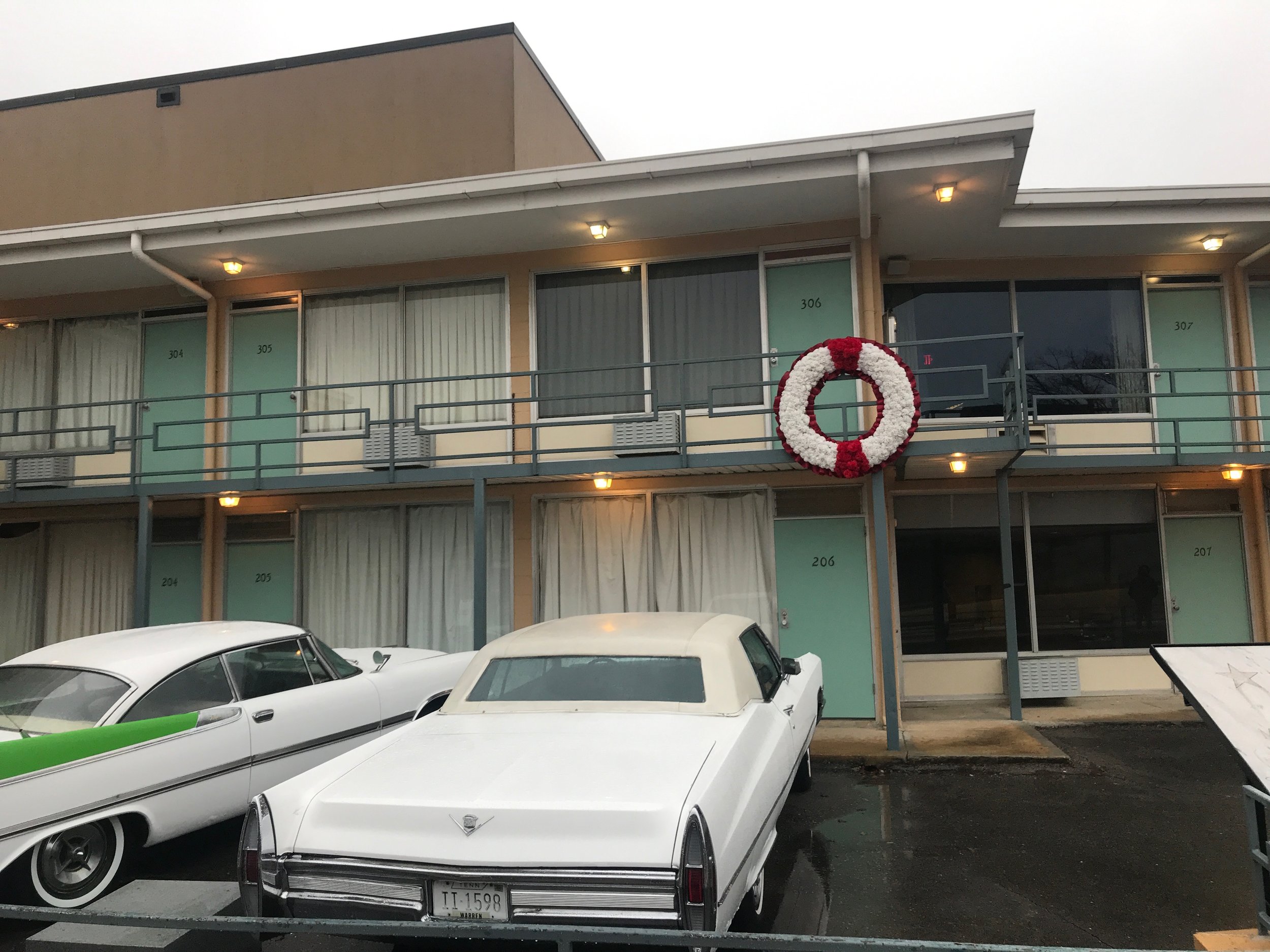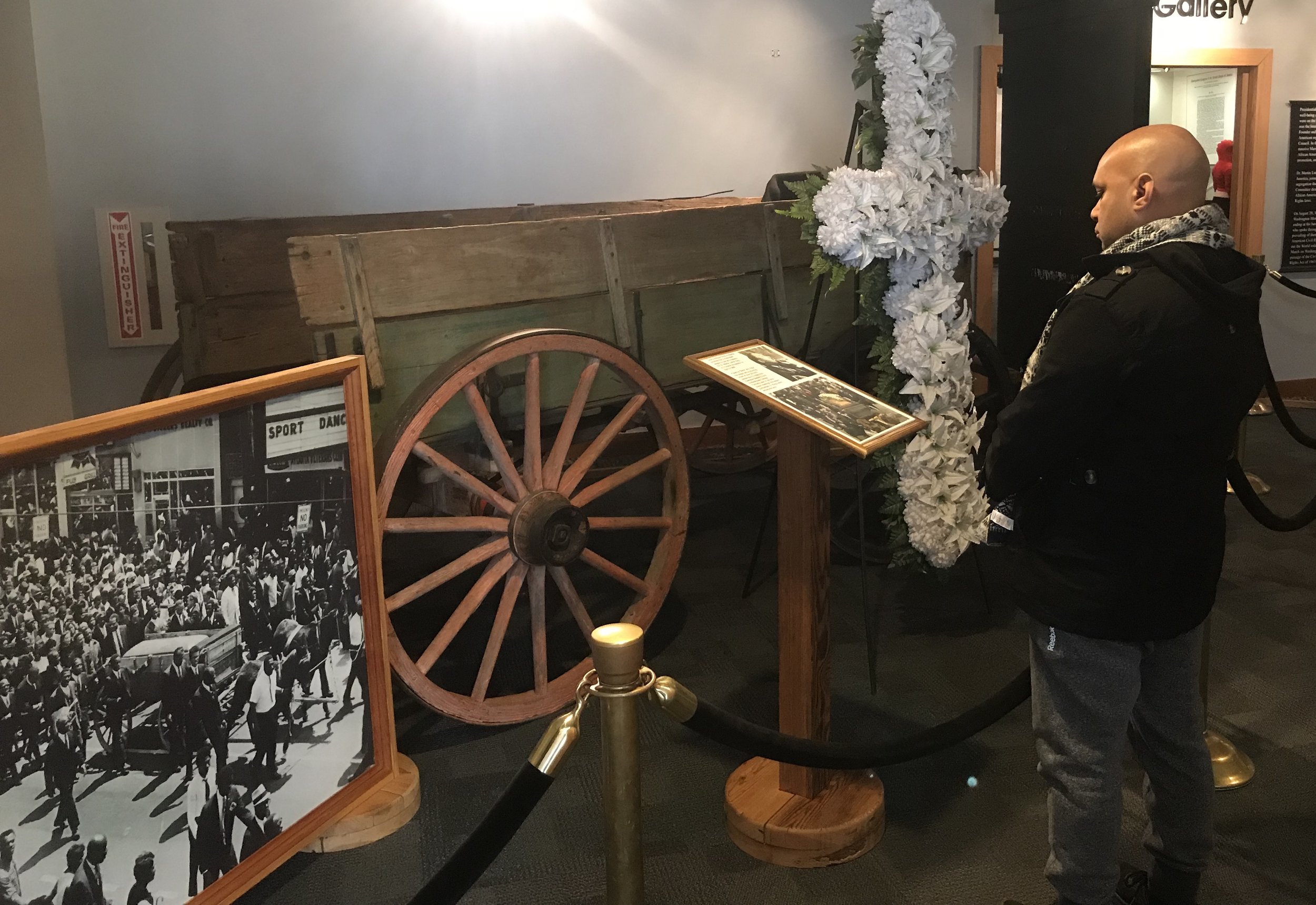Walking the Civil Rights Trail
By Rick Holmes
Feb. 28, 2019
This month a tiny newspaper in Linden, Alabama, carried an editorial that disturbed people around the globe, or at least around the internet. The unsigned piece, apparently the work of Goodloe Sutton, publisher of the Democrat-Recorder, declared it was “time for the Ku Klux Klan to night ride again.”
The piece is an unhinged rant, directed mostly at “socialist-communists” in Washington, DC, and one suspects it was co-authored by alcohol. It’s the kind of garbage you can find all over the internet, but because this was in a newspaper – though not much of a newspaper, from all reports – it caught the attention of the national press.
The outrage machine got fired up over Sutton’s piece, and in its din, I heard people thinking, “I told you so. This is America in 2019” and “Alabama. Of course.” Between Sutton’s rant and several politicians’ blackface confessions, the old white South has cast a shadow on this year’s Black History Month.
I won’t defend Sutton, 79, who sounds like someone who deserves to be both pitied and censured. He inherited the Democrat-Recorder from his father and has apparently run it into the ground. He’s “just a bitter old man,” one Linden resident told The New York Times. The Klan is not about to night ride again.
I will defend the small-town journalists of the South – a club of which I was once a member – who work long hours for poverty wages and serve their communities well. But you don’t have to pass an intelligence test to inherit a newspaper, as Goodloe Sutton has proved.
I’m no expert on the Deep South, but I’ve managed to spend some time in Alabama over the two years I’ve spent traveling this American road.
I’ve walked the streets of Montgomery and Mobile. I’ve camped along the Alabama River and beside a lake near Koweliga, Hank Williams’ favorite fishing camp. I’ve hung out at Gip’s Place, a famous old juke joint in Bessemer, and lunched among the young and hip in the multi-ethnic Pizitz Food Hall in Birmingham.
Up North, where I’m from, a lot of people who’ve never stepped south of the Mason-Dixon line think every Alabaman is as white and backwards as Goodloe Sutton. It’s a stereotype that insults millions of good people and erases, among others, the African Americans who make up 26 percent of the population.
Alabamans are diverse in race, age and outlook.
Early in my travels, I visited Selma, Ala., about an hour east of Linden. With several thousand people, I marched across the Edmund Pettus Bridge, scene of the Bloody Sunday march that inspired passage of the 1965 Voting Rights Act. It was a joyous procession.
Since then I’ve managed to hit just about every stop on what’s now billed as the Civil Rights Trail. I’ve visited Central High School in Little Rock and the new Museum of African American History and Culture in Washington. I’ve visited places where students sat in to integrate lunch counters and where Freedom Riders risked their lives to integrate buses.
I’ve toured Martin Luther King’s boyhood home and the house where he and his family lived when he organized the Montgomery bus boycott. I’ve toured the old Ebenezer Baptist Church in Atlanta, where MLK, his father and grandfather all preached, and attended services at the new Ebenezer Baptist Church across the street. I’ve stood in the room next to his in the Lorraine Motel in Memphis, looked into King’s room - preserved just as he left it – and out to the window across the street James Earl Ray fired from. I’ve visited King’s grave and his gleaming new memorial on the National Mall.
I’ve visited the even newer memorial to lynching victims in Montgomery, and little known battlefields like Rosewood, Fla., and Wilmington, NC, where white mobs murdered, burned out and drove off innocent black families. I’ve come away ever more convinced that the struggle to overturn Jim Crow laws and to change the way America talks about race is the most important historical event of my lifetime.
These explorations into black history have given me new perspective on today’s issues and events. Police beatings of young black men is as old as the Klan. The denial of equal access to education goes back to slavery days. Today’s private prisons echo the convict labor system instituted as a post-Civil War alternative to slavery. The struggle for voting rights began a century before Selma and continues to this day.
I’ve also learned that old racists like Goodloe Sutton don’t represent America and they don’t represent Alabama.
The fight for racial equality is a subtext in every chapter of America’s story.
America is in the dark pages, to be sure. But as the Civil Rights Trail reminds us, America is also in the change.
Rick Holmes can be reached at rick@rickholmes.net. You can follow his journey at www.rickholmes.net. Like him on Facebook at Holmes & Co, and follow him on Twitter @HolmesAndCo.



